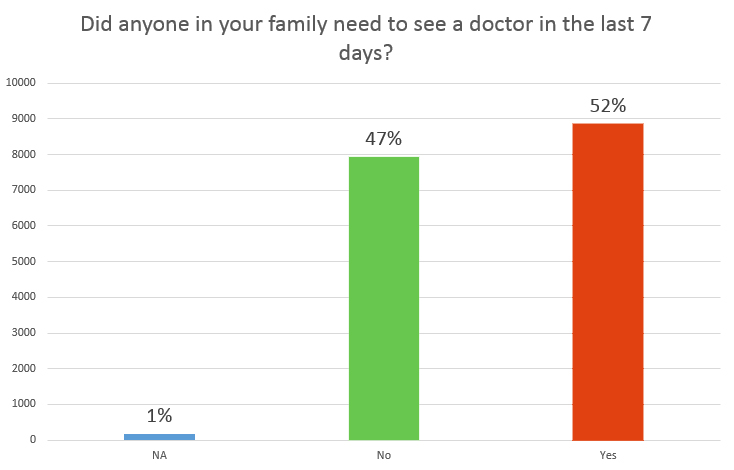- Contents
While at a restaurant last week, the guy sitting at the table next to me pulled out a razor flip-phone. I couldn’t believe what I was seeing. Aren’t those in museums now?
Mobile technology has come such a long way since its development in the 1970’s. In just the past decade, the advancement mobile technology has made is astonishing. In the western world, our smartphones do everything for us; schedule meetings, manage our bank accounts, check Facebook, even pay for our Starbucks. The list keeps going, and it seems there isn’t anything our phones cannot do. If our phones can do all that, shouldn’t they be able to help us with our health?
Healthcare has always and will always be an important issue in the world, for good reason. Being active and eating the right food is vital to maintaining a healthy body and protecting yourself from illness. In America, citizens are increasingly struggling with obesity, but modern medical and phone technology are advancing every day, making it easier to stay healthy. With new technology and apps, our phones can make it easier to manage our health and weight loss, with apps that can calculate BMI, track fitness, or remind you of a diet plan. Tech giants like Google and Apple are pairing up to “reinvent” healthcare: Apple’s new app, Health Kit, combines all the features offered on multiple apps for monitoring your health in one hub. Apple is also partnering with the Mayo Clinic to notify your doctor if your blood pressure rises above normal levels. It appears a lot of cell phone giants are also joining the health app bandwagon, including Samsung, who has developed a fitness band, the Gear Fit.
In developed nations a majority of health concerns are not life threatening, but when looking at developing nations, having access to healthcare could mean life or death. There is a growing trend in these countries to use mobile phones to improve access to medicine or doctors, and educate on general medical knowledge. In Africa, over 80% of people own cell phones. App developers are taking advantage of this growing market by creating applications for “dumb” phones, cellphones which have few advanced features. In Zambia, the Ministry of Health is pairing with IBM to improve the health care system through IBM MobileFirst, which will allow healthcare facility staff in three Zambian districts to use mobile devices to scan barcodes to record and transmit medical stock. Not only will this allow better access to vital medication, but it will enhance the awareness of usage patterns of medications. In Bangladesh, mothers are using their phones to access health information and get weekly text updates on childcare.

This kind of access to health information teaches people the importance of vaccines, check-ups, prenatal care, postnatal care, and general medical knowledge, and can improve the lives of millions of people. A recent poll GeoPoll ran highlights the importance and desperate need for better healthcare in Africa. GeoPoll ran surveys in 10 African countries asking respondents “Did anyone in your family need to see a doctor in the last 7 days?” Over 52% of respondents said yes. Everyone knows that developing countries need better access to healthcare and drugs, and with mobile technology growing it seems hopeful new apps can provide a solution. The kind of healthcare access apps provide can change the lives of many people in developing nations, and the difference mobile technology will make in these emerging markets will be exciting to witness.
